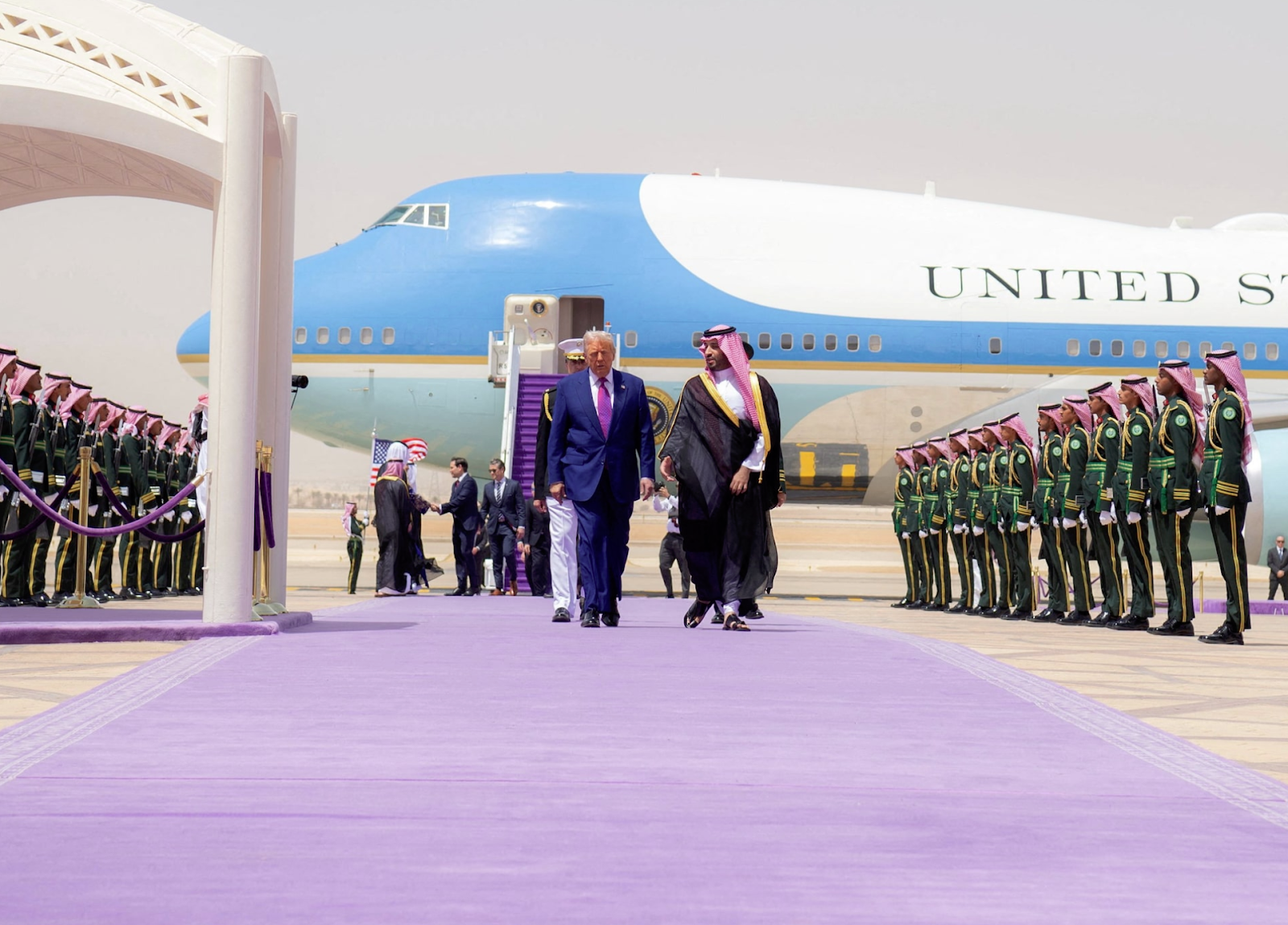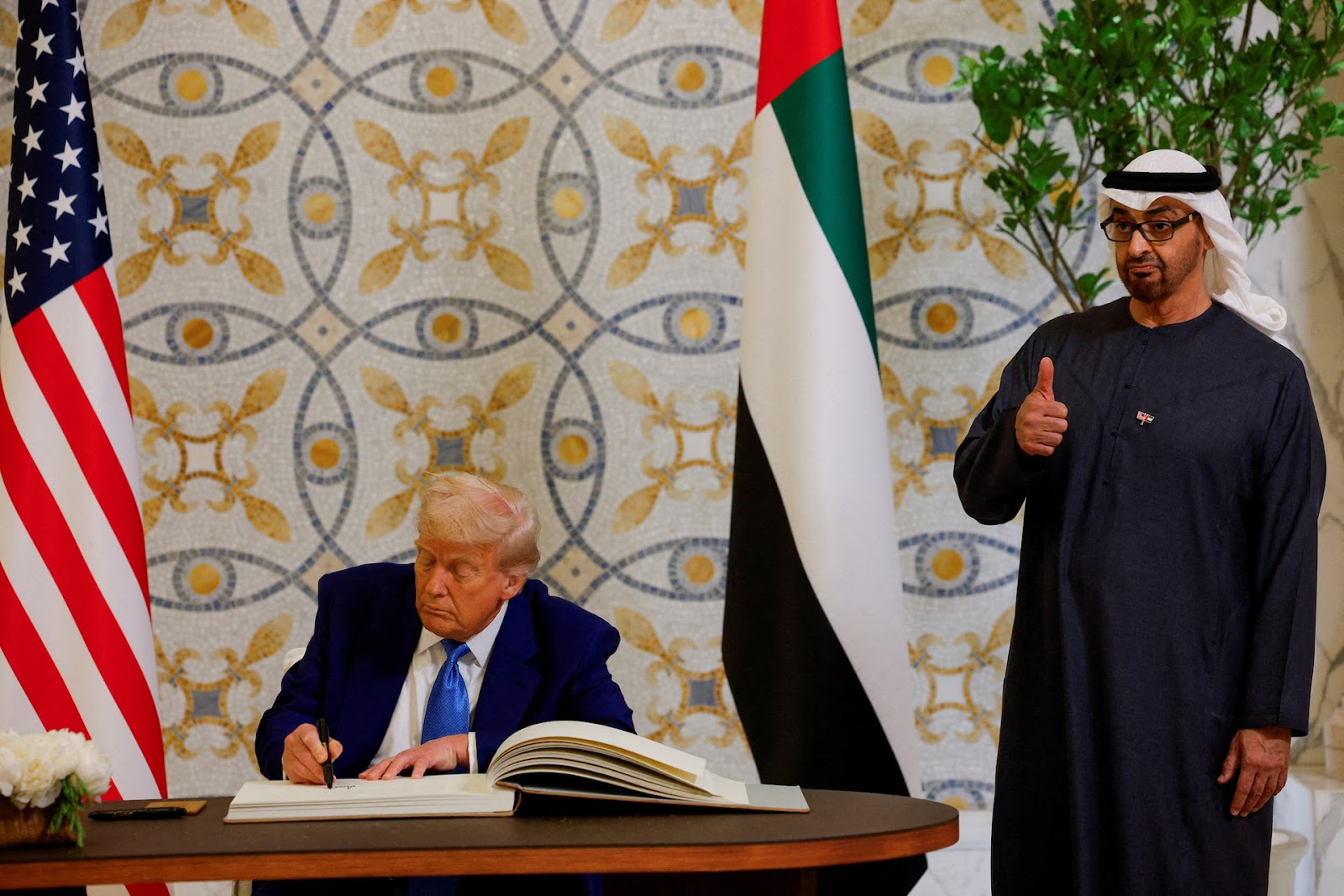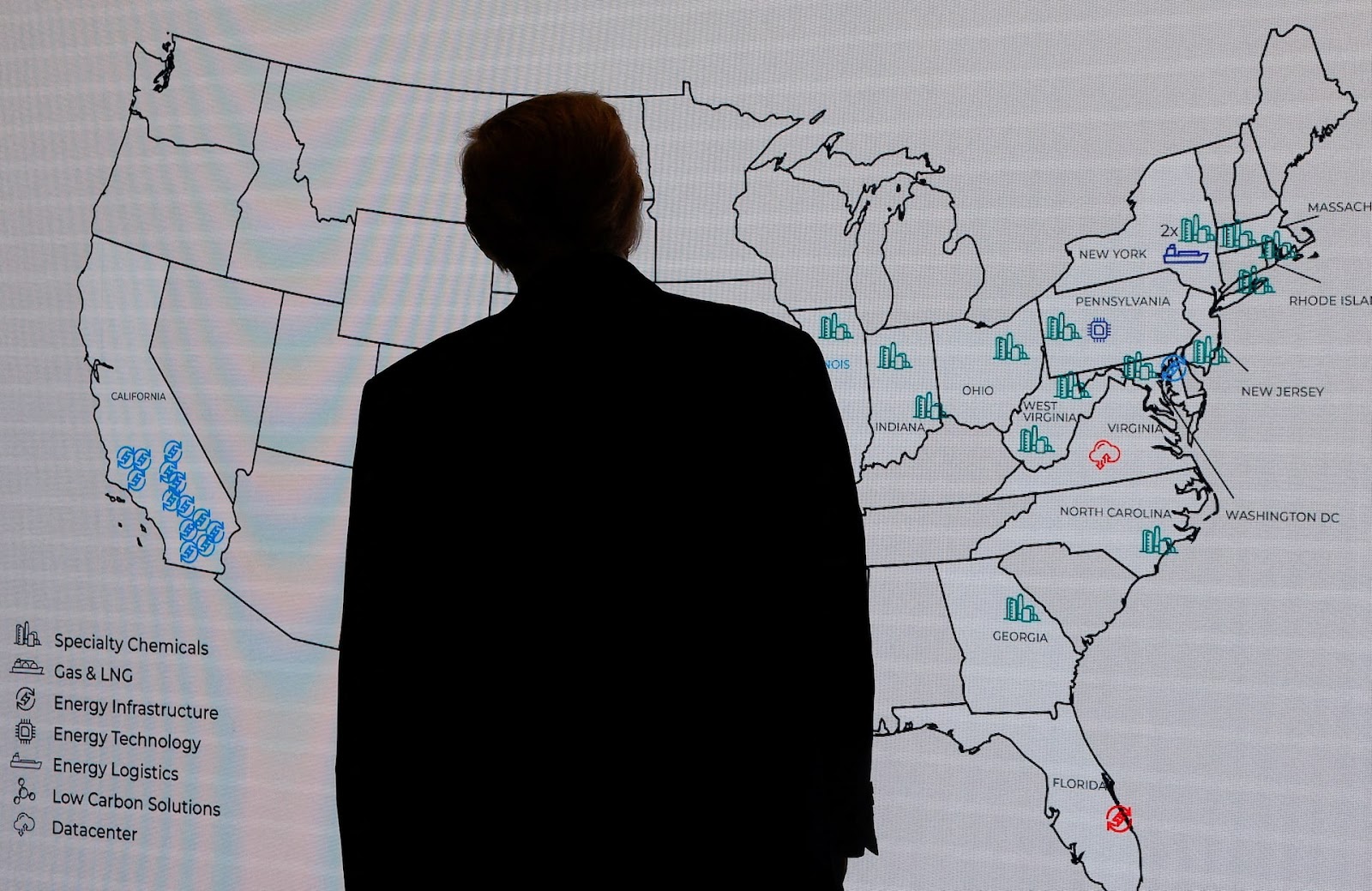The UAE-US Tech Nexus: Opportunities for Global Cyber Leaders in the GCC

This isn’t diplomacy. It’s a joint architecture of defense.

Source: Reuters
President Trump’s visit to the Middle East, from May 13th to May 16th 2025, didn’t just reaffirm the current U.S. administration's engagement with the GCC, it also confirmed a global pivot that cyber operators have seen coming for years.
The Gulf is no longer a buyer of innovation. It’s a builder of infrastructure.
As reported by the Economic Times, these cyber and AI deals go beyond exports, they signal a regional shift toward sovereign co-architecture.
The U.S. remains the strategic driver of global cyber innovation, but today, a key strength lies in operationalizing that innovation with allies who can move fast, deploy widely, and design for resilience from the start.
That’s what this partnership signals. That’s what the Gulf is ready for.
The Gulf Is Building, Not Buying
The Abraham Accords marked a historic shift in regional cooperation, laying the groundwork for today’s operational alignment between Gulf nations and the U.S. What began as diplomatic normalization promoting cooperation, economic growth and regional peace is now evolving into fast-growing technology partnerships, including creating cyber infrastructure and architecture.
During his visit to the UAE in May 2025, President Trump announced $200 billion in new bilateral agreements and confirmed the acceleration of $1.4 trillion in previously committed UAE investment.
Days later, the White House confirmed another $600 billion investment package from Saudi Arabia, spanning defense and digital infrastructure, including a $20 billion AI data center initiative by Saudi firm DataVolt. Crown Prince Mohammed bin Salman expressed hopes to eventually scale the U.S.-Saudi partnership toward the trillion-dollar mark.
Regardless of the final figures, the intent is clear: strategic partnerships between the U.S. and Gulf nations are accelerating, and they’re reshaping how infrastructure gets built.
These agreements signal a shift toward co-developed platforms built to meet national requirements on local infrastructure, with local control.
U.S. firms are no longer just shipping tools, they’re integrating into Gulf frameworks shaped by local regulators, security demands, and data mandates.
The result: faster deployment cycles, high-skill job creation, and scalable AI infrastructure that advances both Gulf resilience and U.S. innovation pipelines.
“The first Trump Administration’s diplomatic and economic achievements - such as the Abraham Accords - laid the initial foundation for these developments. Today, these states present tremendous opportunities for U.S. partnerships based on shared priorities for security and prosperity, both regionally and globally. The U.S. brings leading innovation expertise and global security insights, particularly in AI and cybersecurity. The Gulf contributes sovereign commitment, conflict-zone urgency, and formidable financial resources. In this alliance, the U.S. and its partners don’t just share investments – they share tactical and strategic lessons that sharpen innovation on both sides.”
- Christian Schnedler, CEO and Co-Founder, Rilian Technologies
These investments bring more than capital. They reflect a sovereign mandate to embed technology into national strategy, backed by frontline urgency, operational insight, and long-term commitment.
As our CEO & Co-Founder, Christian Schnedler, notes, the Abraham Accords didn’t just open diplomatic channels, they laid the groundwork for today’s security-first innovation alliances, where U.S. expertise meets Gulf execution at sovereign speed.
From Strategy to Architecture

Source: Reuters
The UAE isn’t waiting to adapt to the future. GISEC 2025 confirmed what’s now unfolding at scale: the Gulf isn’t experimenting. It’s executing, read more on it in our article. In the week following the event, U.S.–GCC cooperation moved from agreements to deployments, with new initiatives focused on sovereign cloud, real-time threat systems, and national AI infrastructure.
“As a U.S. cybersecurity startup founder living and working in the UAE, the announcements during President Trump’s visit highlight why this is the right time and right place for innovators and entrepreneurs to operate.”
- Christian Schnedler, CEO and Co-Founder, Rilian Technologies
The growing partnership demonstrates momentum at the highest levels. Sheikh Mohamed bin Zayed told President Trump that the UAE was “keen to continue and strengthen this friendship for the benefit of the two countries and peoples,” affirming that “this keenness is mutual.”
These aren’t symbolic gestures. They mark a new phase of co-development, where operational infrastructure is designed jointly, deployed locally, and governed under sovereign frameworks.
And at Rilian, we’re not watching from the sidelines – we’re building right alongside them.
U.S. and Gulf States Are in Alignment

Source: Reuters
Alliances don’t hold weight until they move in sync.
What’s unfolding between the U.S. and the Gulf isn’t a distribution of influence, it’s the co-design of infrastructure that reflects both urgency and depth. It’s a shared commitment to operationalize cyber resilience at sovereign scale.
The U.S. brings:
- Strategic Doctrine: Proven frameworks for defense, deterrence, and layered cyber architecture.
- AI Research Leadership: Advanced model training, red-teaming, and trust-layer engineering.
- Global Intelligence Networks: Threat visibility across borders, sectors, and adversarial ecosystems.
- Interoperability Standards: System architectures built to scale across government, military, and industry.
The Gulf brings:
- Operational Urgency: Frontline proximity to regional conflicts, state-sponsored attacks, and information warfare.
- Sovereign Capital: Government-backed resources deployed with speed and clarity.
- Execution Mandate: No paralysis by policy, just the authority to build at national scale.
Together, these aren’t parallel efforts.It’s a coordinated buildout of shared systems that function under pressure and serve sovereign goals.
Key Deployments Driving the Shift:
- AI Campus – Announced in May 2025 as the largest outside the U.S., designed to train sovereign LLMs, simulate disinformation campaigns, and model kinetic-cyber fusion scenarios.
- Nvidia Chip Pipeline – Formalized in May 2025, with an agreement to import 500,000 H100s annually to power national-scale AI deployments for threat detection, anomaly scoring, and response optimization.
- AWS Sovereign Launchpad – Launched in April 2024, this hyperscale cloud infrastructure is built specifically for government workloads and critical infrastructure, with zero foreign dependency.
- Google Cybersecurity Center – Announced in April 2025, serving as a national node for cybercrime forecasting, breach cost modeling, and SOC enablement at the state level.
- Microsoft & G42 – Initiated in April 2024, the partnership delivers local AI stacks built for Gulf policy frameworks, data localization mandates, and sector-specific resilience.
- Qualcomm + ADIO + e& Engineering Center
As part of the May 2025 agreements, Qualcomm will establish a national innovation hub focused on edge AI, data center scaling, and industrial IoT. - Counter Ransomware Initiative + Crystal Ball Platform
Post-visit, the U.S. and UAE expanded cooperation under the White House–led CRI and formalized joint contributions to the Crystal Ball threat-sharing platform, enabling real-time visibility between allied states.
The patterns are clear: strategic doctrine is now being written in data centers, chip pipelines, and sovereign cloud stack designs.
And with each project, what began as diplomatic promise turns into operational reality.
For U.S. cyber leadership, this isn’t a shift away, it’s an expansion outward. By partnering with Gulf states capable of executing at sovereign speed and scale, the alliance is trading theoretical alignment for built-in resilience. The result is a cyber architecture that spans institutions, borders, and real-world readiness.
What These Moves Enable
The U.S.- UAE’s cyber partnerships aren’t just symbolic, they unlock concrete, sovereign capabilities that were previously gated by dependency, vendor throttling, or foreign oversight.
We unpacked this shift in greater detail in our article, The Sovereign Shield, a breakdown of why compliance isn't enough, and why real cyber defense must be architected for sovereignty from the start, exactly what this U.S.–GCC alignment is now making real.
Here’s how:
- Real-Time Breach Detection: Detection cycles that operate onshore, without reliance on offshore compute or outsourced platforms.
- Jurisdiction-Locked Data Flows: National teams maintain full visibility into telemetry and breach signals, vendors don’t own the view.
- Arabic-Tuned LLM Monitoring: Language-specific AI defenses trained to catch culturally nuanced phishing, disinformation, and behavioral anomalies.
- Agentic Incident Response: Local responders can isolate, escalate, and contain threats without waiting on foreign authorizations or platform gates.
- Compliance-As-Protocol: Sovereign deployments where data residency, control layers, and regulator access are architected, not appended.
Execution in Sync

Source: Reuters
The Gulf’s priorities are already reshaping the global cyber landscape. The US administration’s visit turbo charges a new cyber order: governments, cloud providers, chipmakers, and cyber firms working in sync to harden national infrastructu
This is the next phase of cyber defense rooted in local control and geopolitical urgency.
At Rilian, we don’t just support that shift, we help build it. We work alongside national teams to deploy sovereign-grade systems that don’t just respond to threats, but stand ready before they arrive.
Book a meeting to explore how we architect cyber resilience at nation scale







.jpeg)
